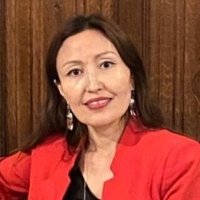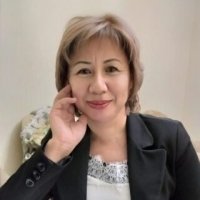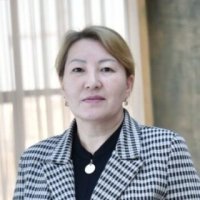The transcript has been lightly edited for clarity.
Dynamics of Central Asian Integration
Azhar Shaldarbekova, Associate Professor, L.N. Gumilyov Eurasian National University, Astana, Kazakhstan
The war in Ukraine, the Taliban’s rise to power in Afghanistan, the water resource crisis, energy and logistic issues—these problems have brought the issue of close interaction and cooperation among Central Asian states to the forefront. Cooperation between Central Asian states occurs in both bilateral and multilateral contexts, with interaction within the framework of international organizations.
[The] organization of consultative meetings of the heads of Central Asian states is of particular significance. The first summit was convened in March 2018 in Astana. [Nursultan] Nazarbayev, in his welcoming speech, noted that the summit was held on the eve of Nowruz, the New Year holiday common to all Central Asian peoples. Thus, the importance of common history, culture, and traditions was emphasized. Four countries—Kazakhstan, Turkmenistan, Kyrgyzstan, and Uzbekistan—speak Turkic languages. Tajikistan, while speaking Persian, also shares the common cultural heritage with the Turkic people of the region.
In bilateral cooperation, we can highlight three main directions. The first direction includes organizations: CIS, the Eurasian Economic Union, the Customs Union, Collective Security Treaty Organization (CSTO). These organizations are engaged in the ongoing development of economic and political ties that were initially established during Soviet times. The initial group addresses economic collaboration founded on the political dependence of nations. From the perspective of the participants and member states of the organization, Central Asian people associate [it] with the colonial past, which restricts their autonomy to develop and modernize independently.
Second is cooperation within the framework of the Shanghai [Cooperation] Organisation. CSO countries are economically unified by the New Silk Road, a transportation system designed to facilitate the movement of goods from China and Central Asian countries to Europe.
The third direction of interaction between Central Asian countries, except Tajikistan, is cooperation within the framework of the Organization of Turkic States. After the collapse of the Soviet Union, Turkey actively began to promote the idea of the integration of Turkic peoples and countries. In the period of more than 30 years, the direction has changed in content. Turkic states don't accept any Big Brother concept now. Each country promotes its own political and economic interests.
Also at present, a number of international Turkic organizations are functioning. The Turkic Academy in Astana engages in scientific research on Turkic peoples, while the TURKSOY Foundation of Turkic Culture and Heritage has facilitated cultural events. And one of the most important Turkic organizations is TURKPA, which aims to unify the parliamentary system of the member countries of the organization.
The principal challenge identified by Turkic Vision 2040 is that of political security. From an economic standpoint, the participating countries aim to develop a sophisticated logistics infrastructure that would facilitate trade and economic relations. To illustrate, the establishment of transportation and logistics system between Kazakhstan and Azerbaijan was the trade of oil. The provision of transportation for Turkmen gas to Turkey is also a key objective.
The next important issue is the development of military industry. All five Central Asian countries are actively acquiring the Turkish Bayraktar and the [TAI] ANKA [drones]. In Kazakhstan, the Azersun joint venture has started production. Kazakhstan and Uzbekistan are increasing ties with Turkey in the military industry [area]. In the context of the interaction of Turkic states in the expansion of geopolitical borders, it is possible to develop transport infrastructure for the functioning of the Trans-Caspian International Transport Route.
The Trans-Caspian Corridor or Middle Corridor is a proposed transportation route that would connect all the countries between China to Europe, Georgia, and Azerbaijan across the Caspian Sea. The seaports of Azerbaijan, Kazakhstan, and Turkmenistan will be the primary means of transportation. The development of economic collaboration within the framework of the OTS organization, with Turkey as a member of NATO, will contribute to the economic breakthrough, which will entail democratic transformations in the region.














